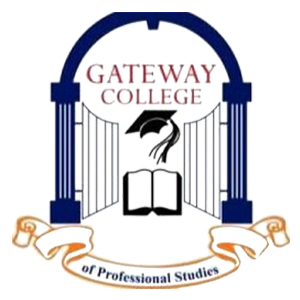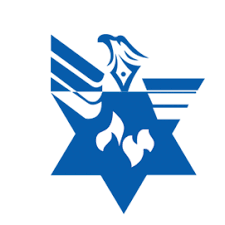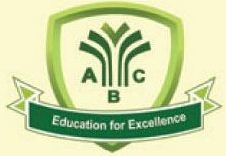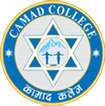Overview
BHM at Nepal College of Travel and Tourism Management (NCTTM)
Bachelor of Hotel Management (BHM) at Nepal College of Travel and Tourism Management (NCTTM) is a four-year, eight-semester undergraduate course under Tribhuvan University in Kathmandu.
You study hotel operations, rooms division, front office, housekeeping, food production, food and beverage service, hospitality accounting, marketing, and research basics.
NCTTM connects classroom study to lab practice and field exposure so you can handle entry-level responsibilities in hotels, restaurants, resorts, and related services.
Highlights
-
Affiliation: Tribhuvan University, Faculty of Management
-
Duration and structure: four years, eight semesters
-
Study focus: rooms division, front office and PMS routines, housekeeping, food production, F&B service, hospitality accounting, marketing, and service quality
-
Assessment: semester examinations, practical checks, presentations, project files, and internship records
-
Campus resources: front-office PMS practice area, training kitchen, demonstration restaurant and bar, housekeeping mock room, AV/multipurpose halls, computer lab, and library
-
Graduate aim: workplace-ready roles across hotels, resorts, restaurants, event venues, and allied hospitality operations
Curriculum Details
Semester one introduces hospitality foundations, service etiquette, communication, and basic kitchen science. You practice safety, hygiene, and knife skills, then write short reflections that show how procedures support guest experience.
Semester two advances rooms division and front-office basics. Topics include reservation cycles, registration, billing, night audit overview, and standard reports. Housekeeping theory begins, covering cleaning schedules, linen routines, and inventory control. Simple spreadsheets and record-keeping exercises strengthen accuracy.
Semester three builds culinary and service depth. You prepare soups, sauces, and basic mains while learning portion control and temperature checks. Service drills cover table setting, order taking, and billing. A hospitality accounting unit explains journals, ledgers, and cost sheets for small outlets.
Semester four links operations to management. You learn menu planning, standard recipes, and food cost control. Front-office practice uses PMS screens for check-in/out, room assignment, and common amendments. Housekeeping labs handle deep cleaning, inspection, and lost-and-found records. A research methods block starts with questionnaires and simple data summaries.
Semester five explores marketing, revenue concepts, and service quality. You prepare rate fences for rooms, outline simple packages, and map channels for sales. Event basics introduce banquet layouts, function prospectuses, and vendor coordination. Short case tasks connect pricing, occupancy, and guest feedback.
Semester six focuses on compliance and risk awareness. You examine food safety, HACCP ideas in plain terms, fire safety, and incident reporting. A language/elective module may support guest communication for specific markets. Field visits or mini-projects help you observe back-of-house flows.
Semester seven moves toward supervisory routines. You run mock shifts, check duty rosters, brief teams, and review logs. A small project requires a plan for service improvement in one area—front desk, housekeeping, kitchen, or F&B service—backed by data from observation.
Semester eight concludes with an internship or a project plus a viva. You compile evidence of tasks performed, reflect on learning, and present a concise report. The aim is to show that you can connect guest handling, cost control, documentation, and teamwork in real settings.
Objectives
-
Build practical knowledge of hotel operations across rooms, kitchen, and service outlets.
-
Strengthen problem-solving for guest requests, errors in bills, and quality gaps in daily shifts.
-
Improve written and spoken communication through logs, checklists, emails, and short reports.
-
Prepare graduates for early supervisory tracks once experience and references grow.
Scope
Students enter a broad field that includes hotels and resorts, quick-service and specialty restaurants, conference and event venues, cruise operations, airline lounges, and facilities management. Destination bodies and hospitality startups also engage graduates for coordination roles. You gain a view of both on-property operations and vendor relations in Kathmandu and major tourist hubs.
Learning Outcomes
-
Explain the guest cycle and show how reservations, registration, billing, and check-out link to records and revenue.
-
Apply housekeeping standards, plan cleaning schedules, and maintain store registers.
-
Prepare basic menus, standard recipes, and cost sheets; follow safety and hygiene routines.
-
Deliver table service, handle order sequences, and troubleshoot common billing issues.
-
Use PMS for front-office tasks at a foundational level and produce simple shift reports.
-
Summarize feedback data and propose small improvements for service quality.
Skill Development Modules
-
Front office and PMS: reservation flow, room assignment, key control, amendments, night audit overview.
-
Housekeeping operations: cleaning science, linen and uniform control, public-area schedules, inspection checklists.
-
Food production: mise en place, stocks and sauces, bakery basics, portioning, temperature logs, waste tracking.
-
Food and beverage service: styles of service, order cycles, beverage control, buffet and banquet setups.
-
Hospitality accounting: cash and bank books, voucher control, cost and revenue summaries for outlets.
-
Marketing and sales support: rate plans, channel mix, basic content briefs, and lead tracking.
-
Safety and compliance: food safety practices, fire drills, first-aid basics, incident documentation.
-
Soft skills: guest communication, teamwork, time management, and conflict handling.
Teaching Methodology
Teaching blends lectures, guided readings, demonstrations, and lab practice. NCCTM uses the PMS/front-office area for check-in/out practice and common scenarios such as early arrivals, no-shows, and late check-outs. The training kitchen and the demo restaurant and bar host production and service drills. AV and multipurpose halls accommodate presentations, mock briefings, and event simulations.
A typical week balances three parts. You attend classes for concepts and procedures. You complete labs that translate these ideas into routine tasks. You submit quick reports—shift notes, cost sheets, or inspection summaries—that strengthen clarity and accountability. Assessment mixes written tests, practical checks, presentations, and internship documentation.
Admission Requirements
Tribhuvan University sets minimum eligibility for BHM. Applicants complete 10+2 or equivalent in any stream meeting the university’s grade/division rule and pass the required entrance for the intake year. NCTTM conducts counseling, document verification, and selection steps before seat confirmation. You should review the current notice each cycle.
Application documents
-
Application form and recent photographs
-
Academic transcripts and certificates (SEE/SLC onward)
-
Copy of citizenship
-
CV and a short motivation note if requested
Selection flow at the college
-
Counseling and application submission
-
Entrance screening as per TU/Faculty of Management notice
-
Group discussion and individual interview
-
Seat confirmation and fee completion
Career Opportunities
Graduates begin as front-office associates, housekeeping associates, F&B service staff, kitchen trainees, sales coordinators, or event assistants. Hotels and resorts recruit for rooms division and service outlets. Restaurants look for production and service roles. Event venues and catering units need coordinators for functions. Airline lounges and club properties also hire hospitality graduates.
A simple path
You start in front office at a city hotel. Month one covers reservations, upsell scripts, and guest email templates. Month three adds cashiering and complaint handling under supervision. By the end of year one you handle shifts for a section and prepare night audit support documents.
Scholarships and Financial Aid
NCTTM publishes scholarship and fee notices for each intake. Bank financing may be available through partner lenders subject to their rules. You should request a semester-wise fee sheet, clarify refundable deposits, and ask about any merit or need-based categories that apply to BHM seats. Early document preparation helps you meet scholarship or loan timelines without stress.
Why Choose This Course?
-
Tribhuvan University affiliation that signals program recognition across Nepal.
-
Strong link between classroom learning and service practice through PMS, training kitchen, demo restaurant and bar, and housekeeping mock room.
-
Semester plan that builds a portfolio of tasks, including projects and an internship or report.
-
Kathmandu location close to hotels, restaurants, event venues, and suppliers, which supports networking during study.
-
Guidance from faculty who bring sector experience into labs and case tasks.
Conclusion
BHM at NCTTM offers a clear route into hotel and hospitality operations in Nepal. You learn how the guest cycle runs, how teams coordinate across rooms and food service, and how records support revenue and quality. NCTTM aims to help you build a reliable early-career profile through classes, labs, field exposure, and a final internship or project. Your next steps are direct: confirm current eligibility and entrance dates, prepare documents, and plan semester goals so you can graduate with evidence of real work and solid references.


















